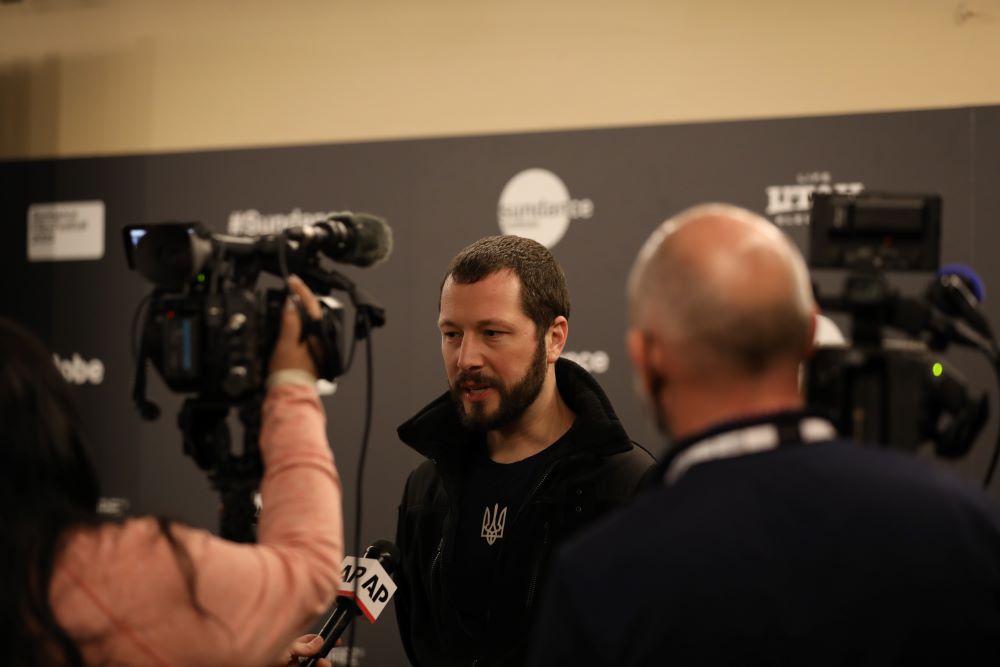Mstyslav Chernov talks to reporters after the premiere of the film “20 Days in Mariupol” at the 2023 Sundance Film Festival.
By Vanessa Zimmer
When Russia invaded Ukraine last February, laying siege to the port city of Mariupol, three Associated Press journalists — the only members of the international press who hadn’t left the city — became the eyes and ears of the world.
One of those journalists, Mstyslav Chernov, set out to direct a documentary, 20 Days in Mariupol — compiling not only what their cameras saw but also what they experienced. The film opened Friday, January 20, in the World Documentary competition at the 2023 Sundance Film Festival.
Among the images the journalists brought to the public at the time was the important, iconic photo of a gray-faced pregnant woman being carried on a stretcher from a shelled maternity hospital — one piece of evidence that the Russians were targeting everyday civilians. But Russian president Vladimir Putin denied that accusation. The hospital footage, he claimed, was staged by Ukranians.
Still, the journalists continued filming and reporting: Neighborhoods and homes were shelled. A fire station was destroyed. Boys playing soccer were hit. Families sobbed over bodies in hospital corridors. “We are good people,” wails one woman whose home has just been destroyed. “Why is this happening?”
Amid the ruins, Ukranians helped the journalists find the few places where they could transmit their images. They thanked them for making their stories known: “Thank you for telling the story of this city,” says one.
The Sundance audience appeared equally grateful, giving Chernov a standing ovation when he entered the stage Friday for the traditional Q&A following the film. They praised his courage in making the documentary, and asked about the fate of the doctors who helped hide the reporters from Russian soldiers. Chernov says they eventually left for Kyiv, where they have started a new hospital.
One audience member was interested in how far the journalists are willing to go in risking their lives.
Chernov answered: “We are Ukranians — that’s what we do.”







